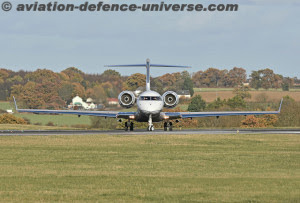 London. 17 May 2024. The British Business General Aviation Association (BBGA) is appealing for the ring-fencing of take-off and landing slots for business aviation users on behalf of its operator members who face being locked out of two premier London airports after 11 pm this summer. London Luton (LTN) and London Stansted (STN) airports will be closed from 11 pm to 6 am from June 1 to September 30 as all ad hoc slots are removed – to make way for expected late arrivals by scheduled airlines. Only Ryanair, which operates three business aircraft itself, for AOG flights, is exempt.
London. 17 May 2024. The British Business General Aviation Association (BBGA) is appealing for the ring-fencing of take-off and landing slots for business aviation users on behalf of its operator members who face being locked out of two premier London airports after 11 pm this summer. London Luton (LTN) and London Stansted (STN) airports will be closed from 11 pm to 6 am from June 1 to September 30 as all ad hoc slots are removed – to make way for expected late arrivals by scheduled airlines. Only Ryanair, which operates three business aircraft itself, for AOG flights, is exempt.
With Luton and Stansted inaccessible, only London Southend and Birmingham (over 100 miles from London) are open 24/7. Other London centric FBOs such as Farnborough closes at 10 pm and Biggin Hill 11 pm. (At the weekend, Farnborough closes at 8 pm and Biggin Hill closes at 10pm). London Oxford Airport is the most viable alternative being open until midnight. In each case, however, staffing is a challenge.
Lindsey Oliver, Managing Director of BBGA explains: London Luton operates its slot allocation under local planning laws. This summer it is enforcing year 2014 local planning noise profiles. London Stansted follows government movement limits on slot allocation for its owners, MAG and MAG is prioritizing slots for scheduled airline overruns.
“We are appealing a decision by the Aviation Minister that London Oxford further alleviation, including pre-season slot hand-back, cannot be justified for the summer 2024 scheduling season,” stated Jason Hayward, leader of BBGA’s FBO Working Group and Managing Director of Universal Aviation, which runs a sizeable FBO at Stansted.
“Lack of night access represents a huge problem for London,” added Lindsey. “London is the only city in Europe where this is happening. Not only does business aviation operate the quietest aircraft flying today, but owners of business aircraft invest huge funds into the UK economy. The music and film industry runs to tight schedules and summer is their prime time. Major events including the Euros, Champions League and Paris Olympics – will all be affected – and business users will go elsewhere.”
Speaking at a recent media event at London Oxford Airport, she highlighted the case of a medical team from Addenbrookes Hospital. They were working on a long and expectedly complex transplant operation in Aberdeen and wished to return to London Stansted. Refused an ad-hoc slot they were forced to land at London Luton, resulting in a long trip by ground transport following an already long day, saving lives.
On another occasion, an influential captain of industry was forced to wait onboard his aircraft for three hours following a visit to the UK. His company had just confirmed a £150 million investment into the local area. His ad-hoc night slot was denied.
Marc Bailey, CEO BBGA, added: “Keeping the UK open to those who want to invest in our country should be a central part of our country’s strategy and these nighttime movements facilitate this activity fundamentally. If we close our doors to these investors in the UK, then it will damage UK GDP at a time when growth is so important to us as a nation. What we need is action today and not promises of future consultations, it will require leadership from the government transport team to make changes for Summer 2024, nothing less than opening these ad hoc slots for business aviation will suffice.”
Lindsey Oliver will be at EBACE 2024 in Geneva on the Gallagher Stand Booth No D50 on Thursday 30 May.























































































































